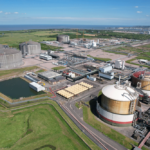Gas Markets Remain Volatile
- European TTF and UK NBP gas contracts moved lower today on the back of Russian news headlines.
- Interfax quoted, “Russia returning some troops to base after drills”.
- New Stream expects price volatility to continue in the short term.
- Milder weather forecasts somewhat mitigated the geopolitical risk premium we have seen over recent months.
- Gazprom did not book any pipeline capacity for March to send gas to Europe via the critical Ukraine / Yamal link.
- LNG supply into Europe is up again.
- Demand destruction due to higher prices means that European gas demand will fall 5% in 2022 after 6% growth last year.
“Unless we see a significant escalation in tensions or further tightening in underlying market fundamentals, we see some downside risk. That’s why we have been so active recently, locking in PPAs and GPAs.”
Charles Ward Head of Renewables at New Stream
UK Power and PPAs
-
High price volatility on PPAs and GPAs continues.
- Upward price momentum appears to be slowing.
- Warmer weather forecasts and increased LNG cargo pressured pricing and weaker market sentiment further.
- Higher wind generation has decreased spot market pricing levels and volatility.
“We still hold the view that upward price momentum is slowing but are seeing big volatility at the front end of the curve. We have been talking to many generators over the last few weeks, and we continue to advocate price-fixing for PPAs and GPAs on an upside versus downside basis. Understandably there are lots of nerves in the market. If you look at this morning, the market is down 6% on the back of Russian headlines. If we look outside of the geopolitics, then demand is clearly much lower on weather, and there will also be some demand destruction because of these high prices, and LNG is up on the supply side.”
Jamie Banks PPA Manager at New Stream
Key Drivers :
- Gas demand.
- Wind generation.
- Geopolitics and Russian gas flows.
- European storage levels.
- LNG cargos.
Carbon :
- EUA’s are currently trading above 90 €/t, with UKA’s around 84 £/t.
- High renewable output has reduced demand from the highs of last week.
- No additional supply is expected in either market despite the fast-approaching compliance deadline.
“The trigger price for the UK Cost Containment Mechanism is now more than 2.5 times the average price for the reference period, effective until January 2023. Both the March and April triggers are already ineligible. “




